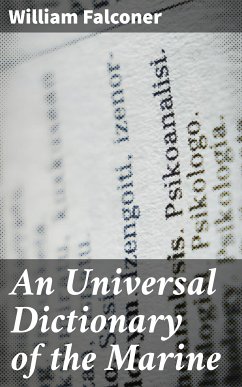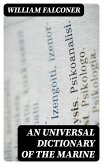William Falconer's "An Universal Dictionary of the Marine" stands as a seminal work in maritime literature, encapsulating a wealth of knowledge relevant to the naval and shipping industries of the 18th century. Through a meticulous and systematic examination of nautical terminology, Falconer's dictionary serves not only as a reference for sailors and shipbuilders but also as a commentary on the intricacies of marine life and navigation. Written in a clear and accessible style, the diction reflects both the technicalities of the sea and the poetic elements of maritime adventures, showcasing the rich tapestry of seafaring culture during his time. Falconer, a distinguished naval officer and poet, drew upon his own extensive experiences at sea to compile this comprehensive work. His background provided him with firsthand insights into the maritime lexicon, enabling him to bridge the gap between practical knowledge and literary expression. His earlier contributions to maritime poetry also influenced the descriptive and engaging manner in which he presents scientific and technical information in the dictionary. This dictionary is highly recommended for scholars, maritime historians, and enthusiasts of nautical literature alike. It serves as an invaluable resource, illuminating the language of the sea and providing context for understanding maritime practices and culture in a pivotal historical era.
Dieser Download kann aus rechtlichen Gründen nur mit Rechnungsadresse in A, B, BG, CY, CZ, D, DK, EW, E, FIN, F, GR, H, IRL, I, LT, L, LR, M, NL, PL, P, R, S, SLO, SK ausgeliefert werden.









